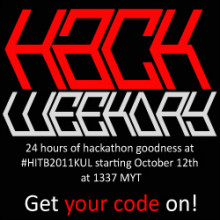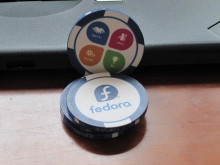Coders and Developers: Come 'get your code on' at #HackWEEKDAY
Inspired by the recently completed HackWeekend and GTUGKL hackathon, HackWEEKDAY is a 24-hour code off that runs alongside the 9th annual HITB Security Conference in Malaysia – Asia’s premier deep-knowledge network security event that routinely brings together some of the world’s leading security experts under one roof












































































